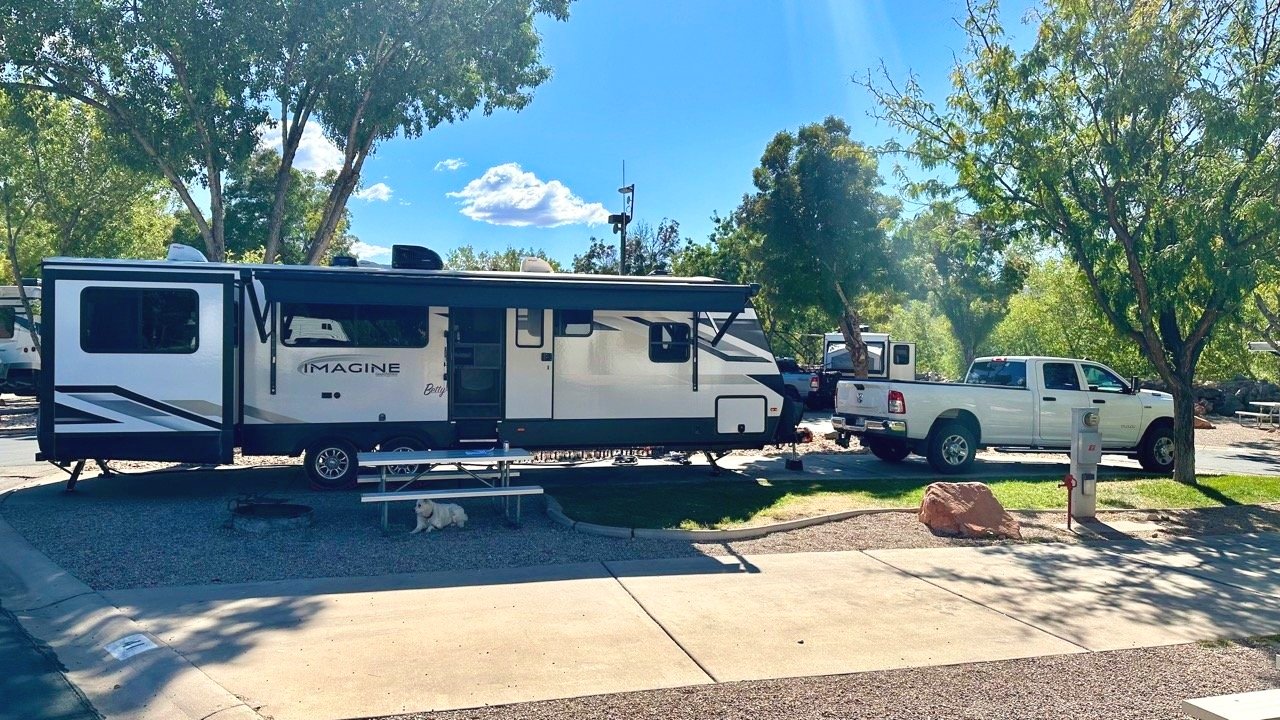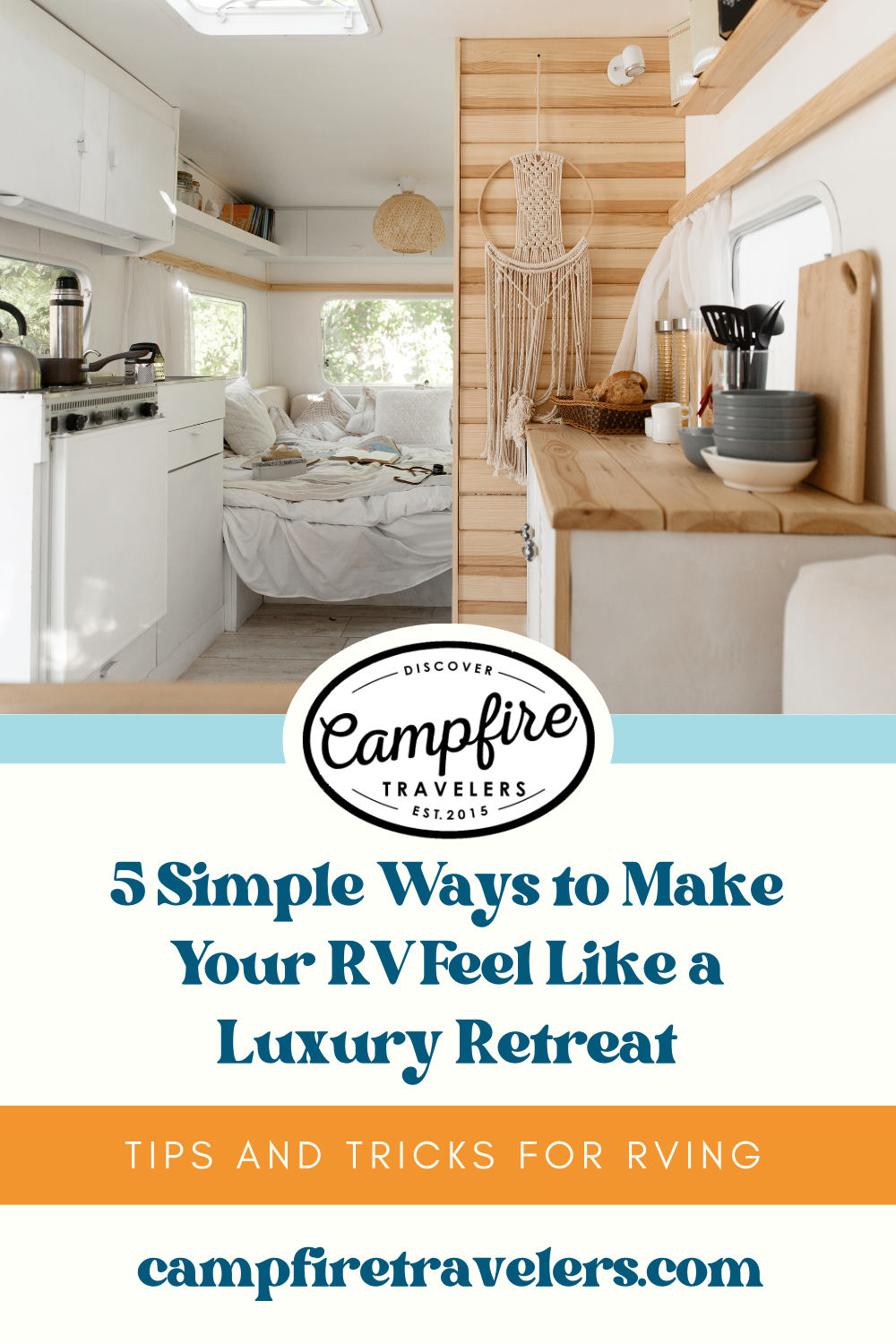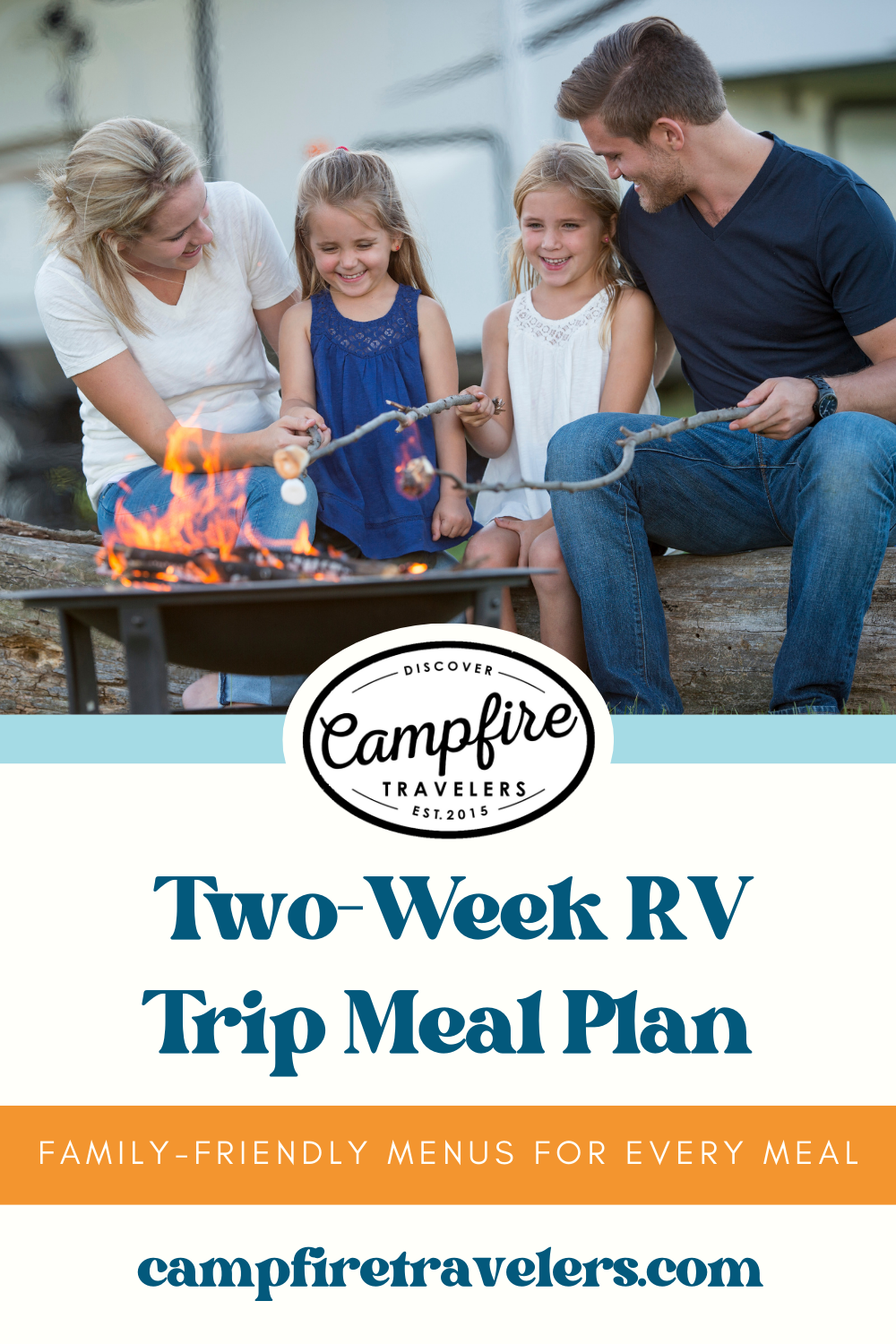The Pros and Cons of Full-Time RV Living with Kids: Is it Right for Your Family?
Full-time RV living has become a popular choice for families looking to travel, experience new adventures, and simplify their lives. However, while it can be a great way to bond with your family and see the country, it's not without its challenges. In this post, we'll explore the pros and cons of full-time RV living with and without kids, so you can decide if it's the right choice for your family.
What is full-time RV living?
Full-time RV living refers to a lifestyle where people live in a recreational vehicle (RV) as their primary residence, usually traveling to different locations or staying in one place for extended periods of time. It typically involves downsizing from a traditional home to a smaller living space that can be towed or driven on the road.
People who choose this lifestyle often enjoy the freedom and flexibility of being able to travel and explore different parts of the country without being tied down to one location. Many full-time RVers also enjoy the simplicity of living with fewer possessions and expenses.
Full-time RV living can involve a range of different types of RVs, including motorhomes, fifth-wheel trailers, travel trailers, and camper vans. Some people choose to live in RV parks or campgrounds, while others prefer to boondock (camping off-grid without access to hookups or facilities) in remote locations.
While full-time RV living can be a rewarding and adventurous lifestyle, it also comes with challenges, such as maintenance and repair of the RV, adapting to a smaller living space, and managing expenses while on the road.
Should you be retired to live in an RV full-time?
No, you do not necessarily need to be retired to live in an RV full-time. Full-time RV living is a lifestyle choice that can be made by people of any age and with various backgrounds and lifestyles.
Many people choose to live in an RV full-time while continuing to work remotely or freelance, allowing them to work from anywhere they have an internet connection. Others may be self-employed or run a small business that can be managed from the road. Some may also choose to work seasonal jobs, such as campground hosts or traveling nurses, while others may be able to live off savings or retirement income.
That being said, full-time RV living does require a certain level of flexibility and adaptability. Living in a small space can be a challenge, and you will need to be comfortable with regularly moving to new locations and dealing with the maintenance and repair of your RV.
Ultimately, whether or not full-time RV living is a good choice for you will depend on your personal preferences, financial situation, and lifestyle goals. It is important to carefully consider all the factors involved and to be realistic about the challenges and benefits of this lifestyle before making the decision to live in an RV full-time.
What are the best jobs for someone who wants to live in an RV full-time?
If you want to live in an RV full-time and work while on the road, there are a variety of jobs that can be a good fit for this lifestyle. Here are some options to consider:
Remote work: With the rise of remote work, many people are now able to work from anywhere with an internet connection. If you have skills in writing, programming, design, marketing, or other areas, you may be able to find a remote job that allows you to work from your RV.
Freelancing: Freelancing can be a good option for those who want more flexibility in their work. There are many different types of freelance work available, such as writing, editing, graphic design, web development, social media management, and more.
Seasonal work: Many RVers choose to work seasonal jobs, such as campground hosts, park rangers, or working in tourist towns during peak seasons. These jobs can provide income while also allowing you to explore different parts of the country.
Workamping: Workamping is a program that connects RVers with seasonal work opportunities in campgrounds, RV parks, and other locations. Workamping jobs can include maintenance, office work, housekeeping, and more.
Entrepreneurship: If you have an entrepreneurial spirit, you could start your own business that can be managed from your RV. This could include online businesses, consulting services, or selling products or services at festivals, markets, or other events.
Ultimately, the best job for someone who wants to live in an RV full-time will depend on their skills, experience, and personal interests. It's important to do research and explore different options to find the job that's the best fit for you.
Is full-time RV life the same thing as Vanlife?
No, full-time RV life and Vanlife are not the same thing, although there are some similarities between the two lifestyles.
Full-time RV life generally refers to living full-time in a recreational vehicle, such as a motorhome, travel trailer, or fifth-wheel trailer. These vehicles typically have more amenities and living space than vans, and are designed for longer-term living. Full-time RVers often travel to different locations or stay in one place for extended periods of time.
Vanlife, on the other hand, refers to the lifestyle of living in a converted van, often with a focus on minimalism and mobility. Vans are typically smaller than RVs and have fewer amenities, but are designed for more off-grid living and mobility. Vanlifers often travel frequently and live a more minimalist lifestyle, focusing on experiences over possessions.
While there are some differences between full-time RV life and Vanlife, both lifestyles involve living on the road and can offer a sense of freedom and adventure. The choice between full-time RV living and Vanlife often comes down to personal preferences, budget, and lifestyle goals.
Can you live in an RV full-time with your kids?
Yes, it is possible to live in an RV full-time with your kids, but it requires careful planning and consideration of your family's needs.
When it comes to education, there are several options available to families who live in an RV full-time. Homeschooling is a popular choice for many RVing families, as it allows them to have more control over their children's education and curriculum. Online schools and virtual learning programs are also available, which can provide a more structured education and allow children to learn from anywhere with an internet connection.
As for making friends, RVing families often connect with other families on the road and form close-knit communities. Many RV parks and campgrounds also offer social events and activities for families, such as potlucks, game nights, and movie screenings.
Sports can also be a part of RVing family life. Many communities have recreational sports leagues that children can participate in, and some RV parks have their own facilities for sports like basketball, volleyball, and tennis.
It's important to keep in mind that full-time RV living with kids can have its challenges. Living in a small space can be difficult for some families, and it's important to create routines and spaces that allow for a sense of stability and structure. Additionally, it's important to make sure that your children have opportunities to socialize and develop friendships, as this can be a key part of their development and well-being.
What are the pros and cons of full-time RV living?
Pros:
Adventure and Exploration: Full-time RV living allows families to explore new places and experience different cultures, creating unique and unforgettable memories.
Bonding: Living in close quarters can create a stronger bond between family members, as you'll rely on each other for support and companionship.
Flexibility: RV living allows for flexibility in your schedule, as you can travel at your own pace and change plans as needed.
Minimalist Lifestyle: Living in an RV forces you to simplify your possessions, which can be freeing and reduce stress.
Cost Savings: Full-time RV living can be more cost-effective than traditional living arrangements, as you may be able to save on rent or mortgage payments and other expenses.
Cons:
Limited Space: Living in an RV can be challenging, as space is limited, and it may be difficult to find privacy or personal space.
Education: Full-time RV living can be disruptive to children's education, as they may need to switch schools frequently or participate in distance learning.
Maintenance: Maintaining an RV can be time-consuming and expensive, as repairs and upkeep are necessary to keep it in good condition.
Relationships: Full-time RV living can be isolating, as you may not have a consistent community or support system.
Weather: Living in an RV can be uncomfortable in extreme weather conditions, as they are not always well insulated or equipped to handle extreme temperatures.
What are the biggest benefits to living in an RV full-time?
There are many benefits to living in an RV full-time, including:
Flexibility and freedom: Full-time RV living allows you to travel and explore new places on your own schedule, without being tied to a traditional home or apartment.
Cost savings: RV living can be more affordable than traditional housing, as you can save money on rent or mortgage payments, property taxes, and utilities. Additionally, RV living can allow you to cook your own meals and avoid expensive restaurant bills.
Minimalism: Living in a small space can encourage a minimalist lifestyle, allowing you to declutter and simplify your possessions.
Connection with nature: RV living often allows you to spend more time in nature and enjoy outdoor activities like hiking, fishing, and camping.
Community: RV parks and campgrounds can offer a sense of community and social connection with other RVers.
Adventure: Living in an RV full-time can provide a sense of adventure and excitement, as you explore new places and meet new people.
Reduced environmental impact: RV living can be a more sustainable lifestyle choice, as it typically involves using fewer resources and producing less waste than traditional housing.
Overall, the benefits of living in an RV full-time can include greater freedom, flexibility, and a simpler, more sustainable lifestyle.
Full-time RV living with kids can be a rewarding and exciting experience, but it's not without its challenges. By weighing the pros and cons, you can determine if it's the right choice for your family. Consider your priorities, lifestyle, and goals when making this decision, and be prepared to adapt and adjust as needed. With careful planning and preparation, full-time RV living with kids can be a life-changing experience that brings your family closer together and creates lasting memories.
Want more RV inspiration? Check out these posts!
SAVE this for later!
SHARE this with a friend!



































